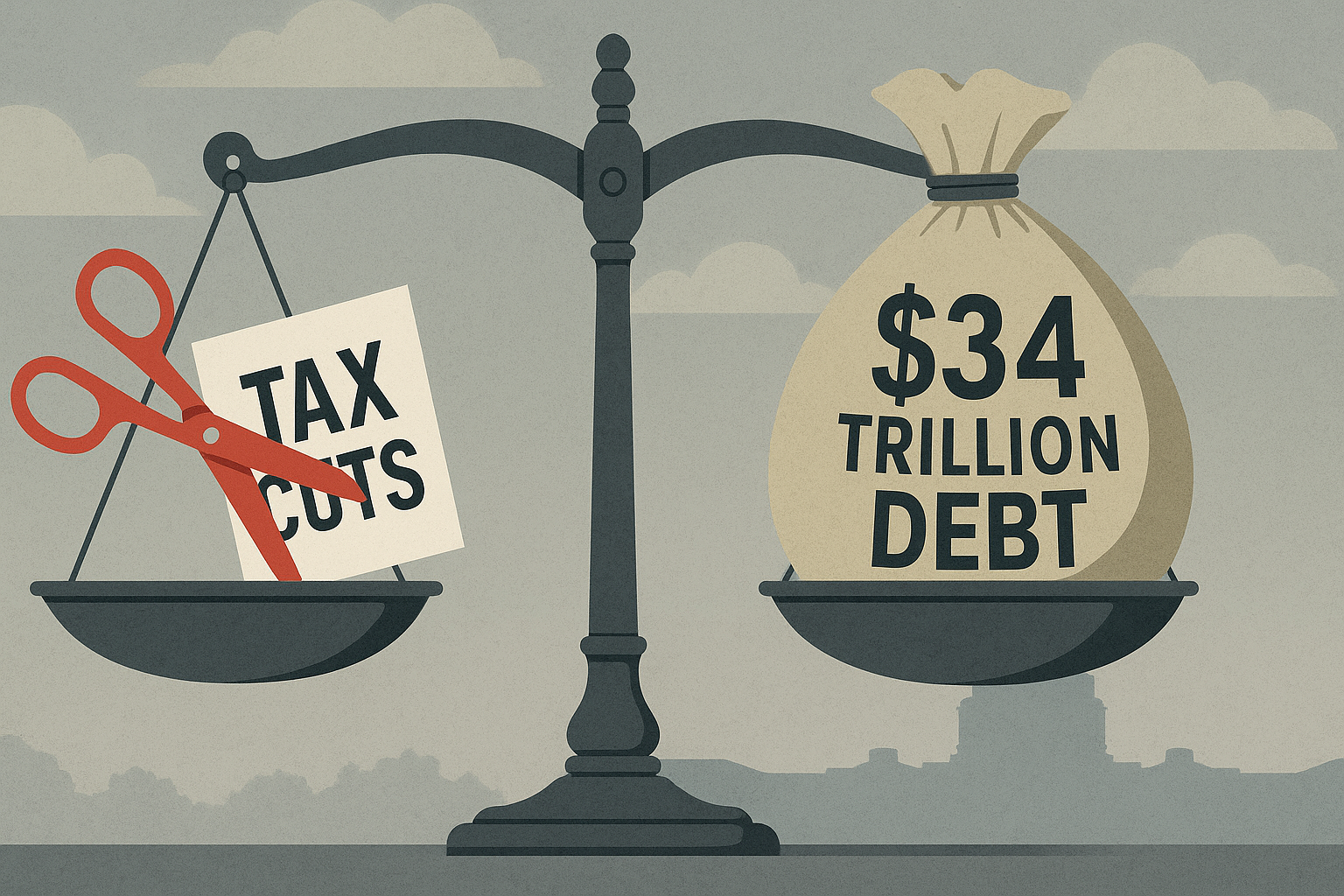They did it by the skin of their teeth.
The tax bill—Trump's much-touted extension of his 2017 cuts—limped across the finish line yesterday with a razor-thin 218-214 vote in the House. Four votes. That's not a mandate; that's a whisper.
I've covered congressional nail-biters for years, and this one had all the classic symptoms: frantic last-minute phone calls, members suddenly developing "scheduling conflicts" to avoid committing, and that peculiar hush that falls over the chamber when everyone realizes just how close the count really is.
The victory gives Trump his July 4th legislative fireworks, alright. But at what cost? And I don't mean that rhetorically—I mean $3.4 trillion added to our national debt over the next decade. Remember when billions used to sound like a lot of money? Now we're casually tossing around debt increases roughly equivalent to Germany's entire GDP. Let that sink in for a moment.
What's fascinating (or depressing, depending on your perspective) is watching the so-called fiscal conservatives fold like cheap lawn chairs. No meaningful concessions. No offsetting cuts. Just... capitulation.
"We received strong assurances from the White House about enforcement provisions," one Republican told me afterward, speaking on condition of anonymity because, well, there's not much substance to the claim.
It's what I call the Principle-Policy Gap—that magical space where strongly stated fiscal principles mysteriously evaporate when actual legislation hits the floor. Washington runs on this gap. Lives in it, really.
The moderates worried about those 12 million Americans potentially losing insurance coverage? They got the legislative equivalent of "I'll call you tomorrow"—vague promises about "another bill later in the year." Sure. And I've got a lovely bridge to sell you in Brooklyn.
(Speaking of bridges, our actual infrastructure could use the investment this bill decidedly isn't providing, but that's a story for another day.)
Markets barely blinked at the news. They've seen this movie before—the one where we all pretend to care about debt until the credits roll, then forget about it until the inevitable debt ceiling crisis forces us to pretend to care again.
The real question—and I've been thinking about this a lot lately—is whether voters will buy the economic growth narrative that's being sold alongside these tax cuts. Tax cuts sound great in theory, but they're surprisingly tricky to translate into electoral advantages.
Look, people don't vote based on GDP growth or aggregate economic statistics. They vote on how their own financial situation feels. And right now? Despite historically low unemployment, Americans remain anxious and deeply skeptical about their economic futures.
For investors and regular folks alike, this creates a strange dynamic. On one hand, continued fiscal stimulus should provide some economic tailwind, particularly for companies focused on domestic markets. On the other... well, there's that pesky $3.4 trillion debt increase lurking in the background like the monster in a horror movie that everyone pretends not to see.
The most remarkable achievement of modern American politics might be how both parties have abandoned fiscal restraint while maintaining the rhetoric of responsibility. It's like watching someone order a triple cheeseburger, supersized fries, and a Diet Coke—as if the pretense of restraint matters when the substance clearly doesn't.
As we approach Independence Day, there's a certain irony in celebrating our national freedom by pushing our financial independence further into the future. But hey, at least we got some fireworks, right?
Four votes. That's all it took.
